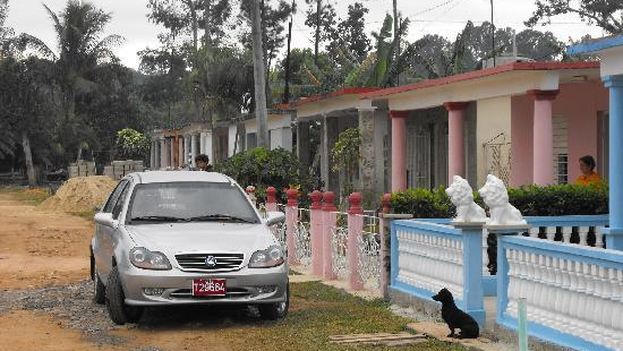
![]() 14ymedio, Yosmany Mayeta Labrada, Havana, 13 June 2016 – After months of waiting and amid growing expectations, a few weeks ago the distribution of cars and computers at subsidized prices to Public Health workers began. The distribution, which for now is limited to Havana, has raised passions due to the small number of vehicles allocated to each hospital. At Calixto Garcia University Hospital, only three cars have been received so far, to be given out among dozens of employees.
14ymedio, Yosmany Mayeta Labrada, Havana, 13 June 2016 – After months of waiting and amid growing expectations, a few weeks ago the distribution of cars and computers at subsidized prices to Public Health workers began. The distribution, which for now is limited to Havana, has raised passions due to the small number of vehicles allocated to each hospital. At Calixto Garcia University Hospital, only three cars have been received so far, to be given out among dozens of employees.
Doctors at the Pedro Kouri Topical Medicine Institute (IPK) have already received “laptops and the designation of some vehicles,” according to a source at the Provincial Health Department in the Cuban capital who spoke to this newspaper but preferred to remain anonymous. The official explained that the distribution began in the institutes and hospitals in the capital as a pilot project to be extended, later, across the entire country.
The plan includes enabling internet accounts for doctors and specialist in the healthcare sector. That initiative began last September when the Ministry of Public Health (MINSAP) opened internet access to its professionals through accounts on the network of the Medical Science Information Network (Infomed).
The cost of each vehicle will range between 3,000 and 7,000 Cuban pesos (CUP), the equivalent of 150 to 300 Cuban convertible pesos (CUC) [and the same in dollars], although the first 200 are being delivered free to prominent doctors. After this first stage, the beneficiaries will be able to get bank loans to finance the purchase. The computers are being sold for about 600 Cuban pesos each.
The National Institute of Oncology and Radiobiology (INOR) received four vehicles to allocate, like the rental cars for the tourism sector. Other facilities have had better luck, such as the Hermanos Ameijeiras Hospital, which received 12 vehicles, according to an employee linked to the union leadership.
Health personnel have criticized the small number of cars being distributed and the ways in which they are being handed out. The authorities have not made public the rules for allocating the cars, leading to disgust and even small conspiracies.
At Calixto Garcia, one of the cars was assigned to Dr. Martha Larrea, professor and chair of the center’s Scientific Committee, who a few years ago returned from a mission in South Africa. “She has a car,” says an employee unhappy with the decision. “She served on mission in a country where all the doctors want to go because they pay well, and to top it off, they assign her car without seeing that she already has one,” he protests.
In other hospitals in the capital, where the distribution has already begun, the first deliveries have prioritized managers and staff linked directly to the Ministry of Public Health.
Outside the capital expectations are growing. The young doctor Yanelis, who manages a medical practice in the community of Veguita Galo in Santiago de Cuba, considers the measure a “very good” thing, focused on reducing the “leakage” of doctors who leave during missions in other countries.
Doctors Gertrudis and Carlos, a married couple who travel every day from the town of Il Frente to Juan Bruno Zayas Hospital, are excited about possible access to Internet connections, but are skeptical given the poor coverage in the area where they live. “Given how bad the cellphone service is here, imagine the internet,” they warn.
In June 2014, the Cuban government raised salaries for health professionals on the island. The increases ranged from 275 CUP to 973 CUP, the latter for grade two medical specialists.
